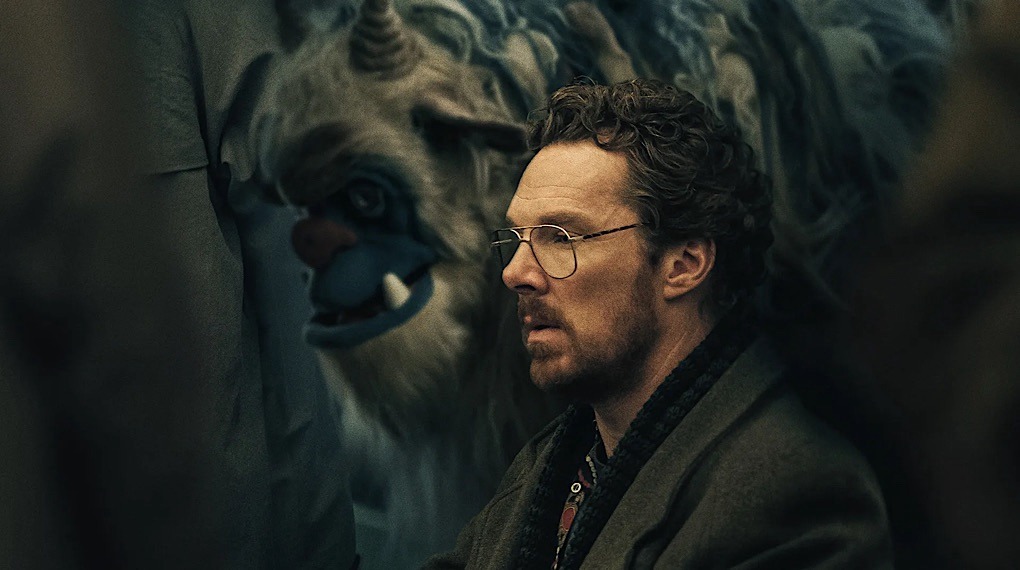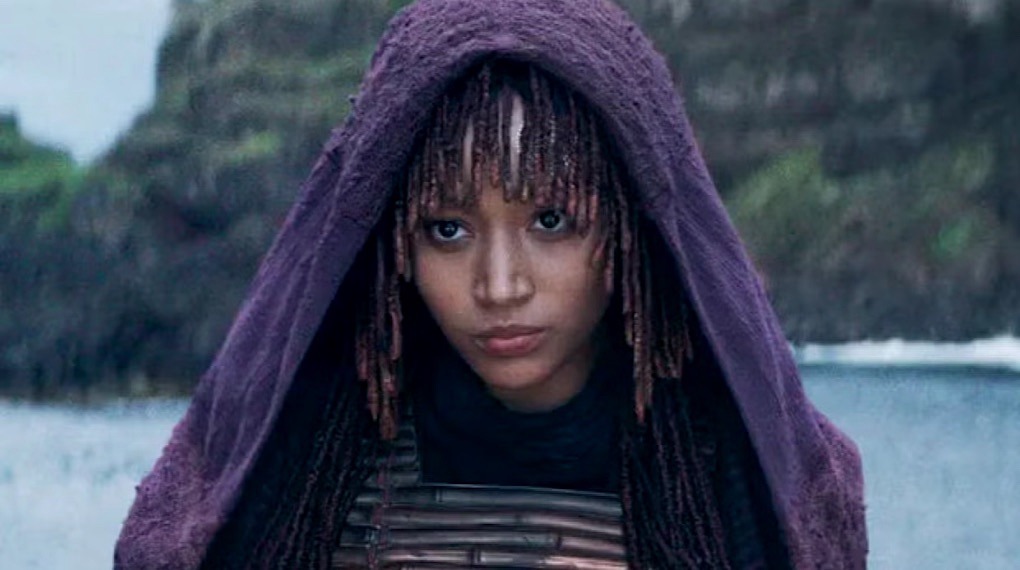Zoe Kravitz’s directorial debut, Blink Twice, is a refreshing blend of noir-inspired mystery and modern psychological drama that brings something new to the screen. Set on a remote, unnamed island where secrets fester and the truth is hard to come by, the film revolves around billionaire Slater King (Channing Tatum) and cocktail waitress, Frida (Naomi Ackie), who’s paths intersect by chance during the latter’s fundraising gala. Although Blink Twice doesn’t always hit its marks, it’s a stylish, thought-provoking film that showcases Kravitz’s potential as a director.
From the opening scene, it’s clear that Blink Twice is visually striking. Kravitz, who also co-wrote the screenplay, has a keen eye for detail, and her direction is full of moody, atmospheric shots that set the tone for the entire film. Cinematographer Adam Newport-Berra beautifully captures the eccentric visuals of the film’s island setting, using effects and camera angles that heighten the sense of unease and mystery throughout. This style is one of Blink Twice‘s greatest strengths, drawing viewers into its strange and unpredictable world.
Channing Tatum, known more for his standout roles in action and comedy, takes a surprising turn as Slater, a man haunted by the demons of his upbringing. Tatum delivers a subdued yet compelling performance, playing against type with a weariness that speaks to Slater’s inner demons. Your desire to learn more about his character and motivations are ultimately what drive this film and the role is played perfectly by Tatum.
Naomi Ackie, meanwhile, is a perfect fit as Frida. She brings a raw intensity to her role, portraying a woman who is both fiercely independent and deeply vulnerable. Ackie’s performance is captivating, providing much of the film’s emotional core and driving its narrative forward.
The chemistry between Tatum and Ackie is palpable, grounding the film even when the plot becomes convoluted. Their interactions range from sharp and tense to tender and introspective, reflecting the complex relationship between their characters throughout. As we delve deeper into the mystery, their growing connection becomes a central part of the story, adding layers of depth and intrigue. It’s in these moments that Kravitz’s direction shines, as she allows her actors the space to explore their characters’ motivations and emotions, creating a sense of authenticity that resonates with the audience.
One of the standout elements of Blink Twice is its score, composed by Chanda Dancy. The music perfectly adds to the film’s noir sensibilities, enhancing the tension and drama of each scene. Dancy’s compositions work seamlessly with the visuals, creating an immersive experience that pulls viewers into the story’s mysterious world.
However, while Blink Twice is a strong debut for Kravitz, it is not without its flaws. The screenplay, while filled with interesting ideas and intriguing characters, occasionally falters under the weight of its ambitions. The plot, which involves multiple threads and descriptions disturbing reveals, can be hard to follow at times, and some of the story’s twists feel more contrived than surprising. The pacing also suffers in places, with certain scenes lingering too long while others rush by, leaving some narrative elements underdeveloped.
Despite these issues, Kravitz’s direction remains confident throughout. She manages to maintain a consistent tone and atmosphere, and her ability to draw strong performances from her cast speaks to her potential as a filmmaker. There is a sense of passion and dedication in every frame, suggesting that the first-time director has a clear vision for her film, even if the execution isn’t always perfect.
Blink Twice is at its best when it focuses on its characters and their internal struggles. The film explores themes of trauma, survival, and the search for truth, offering a thoughtful look at how people are molded by the demons of their upbringing. Kravitz’s script, co-written with E.T. Feigenbaum, touches on these themes with sensitivity and nuance, allowing the characters to drive the story rather than relying solely on plot mechanics.
The ending of Blink Twice complicates the film’s narrative and somewhat muddles the message it seemed determined to deliver, introducing a twist that feels a little jarring and unresolved. This sudden shift disrupts the carefully constructed atmosphere and leaves the audience questioning the point of the journey they’ve just experienced. While ambiguity can sometimes enhance a story, here it detracts from the film’s impact, making the conclusion feel more like a departure from its established themes than a natural evolution.
In conclusion, Blink Twice is a promising start for Zoe Kravitz as a director. While it may not be perfect, the film offers a compelling blend of style and substance, anchored by strong performances and a unique visual style. Kravitz’s debut suggests she has a lot to offer as a filmmaker, and it will be exciting to see how she develops her craft in future projects. With its atmospheric visuals, strong acting, and intriguing themes, Blink Twice is a film that, despite its imperfections, leaves a lasting impression.
Rating: 7.0/10



